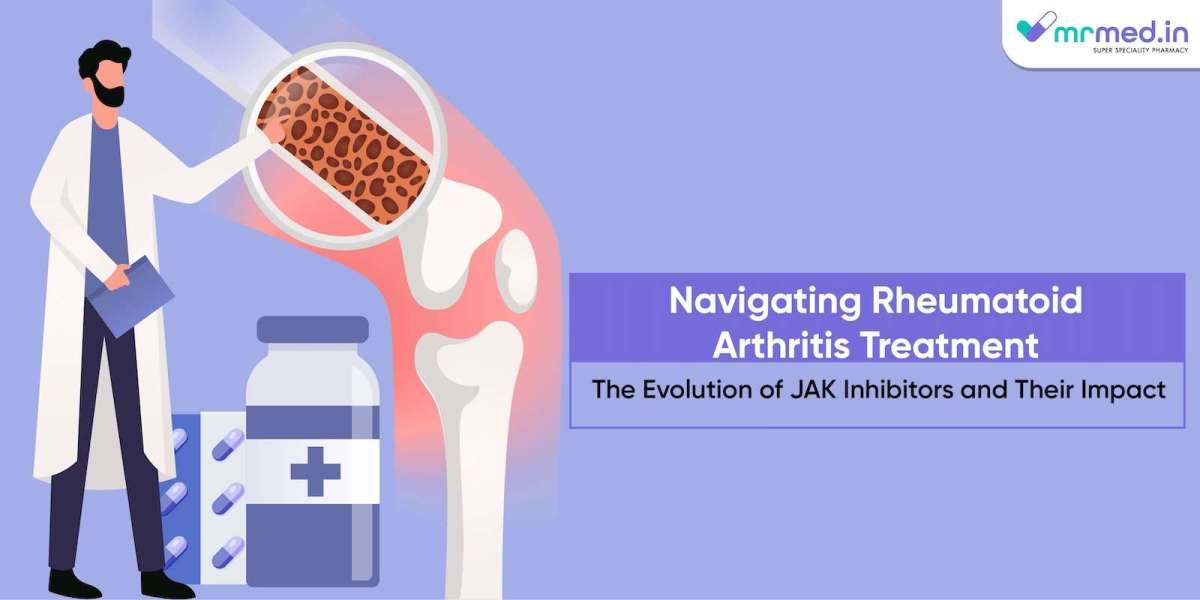Rheumatoid arthritis is a chronic inflammatory disorder in which the body's immune system attacks its tissue due to an autoimmune disorder. This can cause pain, swelling, and stiffness in the joints. While there is no permanent solution for rheumatoid arthritis, management strategies like lifestyle changes, physiotherapy, occupational therapy, nutritional therapy, medication, and surgery can help to alleviate the symptoms of rheumatoid arthritis. However, the adverse reaction caused by rheumatoid medicine has made it vulnerable to use in rheumatoid arthritis. Target medicine like JAK inhibitors has involved a particular immunological signal that signals the inflammatory response in rheumatoid arthritis. Today, we are going to explore the JAK inhibitors in treating rheumatoid arthritis.
Know about JAK inhibitors and their impact on rheumatoid arthritis
Janus kinase inhibitors are a type of rheumatoid medicine that helps to block the immune system signal, which can cause swelling and pain in rheumatoid arthritis. This can be achieved by blocking one or more JAK enzymes in our body. It reduces the immune response, leading to inflammation, pain, and other symptoms.
JAK enzymes are a special type of enzyme involved in cytokine-related inflammatory signals. The FDA has approved three JAK inhibitor medications: baricitinib (Olumiant 4mg Tablet), tofacitinib (Jaknat 5mg Tablet), and upadacitinib (Rinvoq 15 mg Tablet).
Consult a doctor before using the medicine, he/she will treat you based on your health condition and the severity of the disease.
Advantages of using the JAK inhibitors
The benefits of JAK inhibitors in rheumatoid arthritis patients are given below:
1. Targeted Therapy:
It selectively targets the body's inflammatory response, which helps decrease the risk of adverse effects caused by unrelated medication actions.
2. Broad Therapeutic Potential:
It helps treat a wide range of inflammatory disorders like inflammatory bowel disease, psoriatic arthritis, axial spondyloarthritis, ulcerative colitis, dermatitis, and alopecia areata in patients.
3. Rapid Onset of Action:
It can exert a quick therapeutic effect compared to other treatments of rheumatoid arthritis. Due to its rapid absorption, onset of action, and short half-life, the medication can help improve its efficacy in treating rheumatoid arthritis in patients.
4. Steroid-Sparing Effect:
It helps reduce the need for corticosteroids in treating rheumatoid arthritis, which can lead to long-term adverse effects on the patient's health.
Alternative for Non-Responders
It helps in treating patients who have a tolerance or less response to other medicines.
1. Potential for Combination Therapy:
JAK inhibitors can be combined with other DMARDs or biological medicine to treat rheumatoid arthritis.
2. Improved Quality of Life:
It can help alleviate rheumatoid pain and reduce joint stiffness, thereby improving the overall quality of life in rheumatoid patients.
3. Disease Modification:
JAK inhibitors are a special type of medication that belongs to a class of disease-modifying antirheumatic medications (DMARDs) that can treat the underlying cause of the disease.
Side effects of JAK inhibitors
JAK inhibitors can cause the following side effects, which are given below:
- Diarrhea: Individuals may experience diarrhea due to the medication.
- Headache: You may have a headache or pain or discomfort in the head.
- Cold: Individuals may have a sore throat or a runny or stuffy nose.
- Dizziness: You may feel faint, tired, or weak.
- Easy bruising: Individuals may have bruises more easily or frequently than normal.
- Weight gain: Patients have an unexplained weight gain.
- Bloating and gas: Patients may experience fullness or tightness in the tummy.
Complementary Therapies for Rheumatoid Arthritis: Exploring Alternative Treatment Options
Other options, such as physiotherapy, occupation therapy, and lifestyle changes, can help alleviate rheumatoid arthritis symptoms. Eating a diet contains omega-3 fatty acids, vitamin D, and calcium can also help decrease inflammation and alleviate symptoms.
Conclusion
JAK inhibitors have a great impact on treating rheumatoid arthritis and its related symptoms. Before using the medication, it is recommended that you speak with your doctor about its potential benefits and adverse effects.









